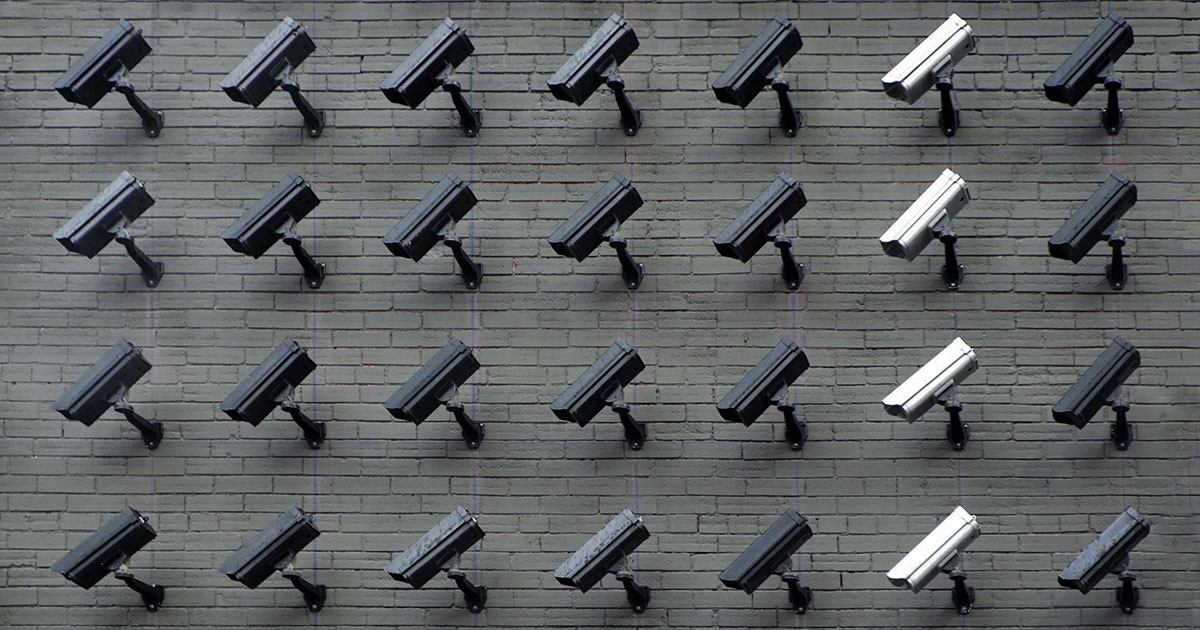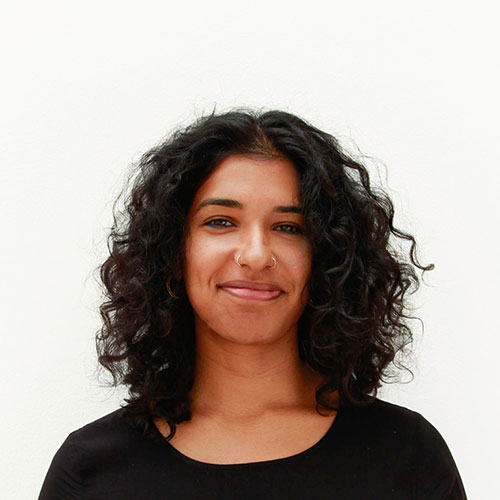RISE
★ ★ ★ ★
Paradigm shifts and privacy

Image by Lianhao Qu
By Aishwarya Vardhana
I share myself with you, and you share yourself with me. We belong to one another completely. Approaching the infinity of your complexity is my greatest joy.
I am not an academic or theorist at a think tank. I am not an activist, journalist, or policy writer in Congress. I am a tech worker, and I enjoy building technology. I build technology alongside my team and in collaboration with the Wikipedia community, Monday through Friday. I have opinions on the way we develop products, but I am one person, and often the complexity of our technological problems exceeds my capacity to assess it. This is me asking for help. I need you, and your vigilance, ideas, and support.
While I am fascinated by digital technology, I am irrevocably linked to the life that exists outside it. I engage with literature, hip hop, visual art, Indian classical dance, feminism, and decolonial thinking. I seek to understand the mechanics of relationships between people, entities, and between people and entities. It is this multidisciplinary curiosity that has allowed me to see the technology I build through a variety of frames and from a range of reference points.
As a Stanford Design school- (otherwise known as d.school) trained designer, I deeply believe in employing cross-functional collaboration to solve a human problem. There is a concept newly minted by The Center for Humane Technology known as the wisdom gap, or the gap between the complexity of the world and our ability to respond to it. Technology has outpaced our ability to make sense of its impact on the world (e.g. disinformation campaigns and 3D printed firearms). The wisdom we need will not come from one or a few individuals but from our collective effort.
A central techno-social problem of our time is privacy, or lack thereof. Digital technology’s genesis began from a place of curiosity. Tinkerers evolved into engineers and scientists who then became inventors. Somewhere in the 2000s inventors evolved into entrepreneurs and profitability became the fountainhead for technological progress. What if the paradigm for the 2020s was human rights, and specifically the right to digital privacy? And what if we reinforced that free, democratic societies are those that protect citizens from surveillance either by the government or corporations?
For the sake of scope I will only briefly examine the following behemoths: Facebook, Instagram, and YouTube. When you are on any of these platforms the system is learning about you. It collects data and provides recommendations (e.g. whom to follow or what videos to watch) based on what it thinks you will click on, and it uses your data to sell ad space. This is the platform’s business model, and it relies on this surveillance to survive. These systems have extensive information about you and thus have the ability to influence your emotions, how you spend your money, your worldview, and how you vote.
Recently, Apple changed its privacy policy with its App Tracking Transparency effort, and we iPhone users received new alerts asking if we wanted an app to track us across other companies’ apps and websites. In 2018 Europe’s General Data Protection Regulation (GDPR) and ePrivacy Directive regulations triggered an avalanche of websites, you may recall, asking for your approval to use cookies. These steps for privacy regulation are critical and admirable; however, they are a band-aid response to an unhealthy system. A colleague of mine and a brilliant systems architect Diana Montalion said it best: “If there’s one thing I know, it’s that a system is a direct reflection of the values that designed it.”
In 2010 Mark Zuckerberg said that privacy is “no longer a social norm” and in 2009 Google’s CEO Eric Schmidt said, “If you have something you don’t want anyone to know, maybe you shouldn’t be doing it in the first place. But if you really need that kind of privacy the reality is that search engines, including Google, do retain this information for some time… we are all subject in the U.S. to The Patriot Act so it is possible that information could be made available to the authorities.”
Surveillance capitalism, or “the capture and commodification of personal data for the core purpose of profit-making”, is a system that self-rationalizes. By arguing that people no longer care about privacy, it allows itself to exist. If such a premise were to be questioned, that would threaten the logic of this economic system.
I am a digital native. I was raised on Facebook, Instagram, YouTube, and the Google search engine. I have shared my most intimate thoughts online and seen my friends and family share theirs. However, to equate social norms around privacy with systems not needing to be private is a misdirection. To say that people “sharing more” constitutes tacit approval of surveillance is specious. My contention is not with online social interactions, but with the ecosystem in which these interactions occur. If the foundational value of the system is privacy it will be embedded, else it will be missing.
San Francisco is currently covered in billboards by Apple and Meta. The Apple billboards say, “Privacy. That’s iPhone” with the iPhone covering someone’s face making them unidentifiable. The Meta billboards show Whatsapp messages being sent that should be private (e.g. “the door key is under the mat”) followed by the catch phrase “If it’s not on Whatsapp it’s not private”. The iPhone privacy commercial played during the NBA finals game while I sat in between my roommate and boyfriend. My boyfriend, not a tech worker, proclaimed, “Is that how it works?!” and my roommate, an engineering lead at an AI startup, simultaneously exclaimed, “That’s not at all how it works!”
They know everything about you, and you know nothing about them. But to them I say, what is it to have gained the world but lost yourself?

Aishwarya Vardhana (she/her) is a digital product designer, artist, and writer. She is interested in decoloniality, feminism, knowledge equity, and systems thinking.
























0 Comments